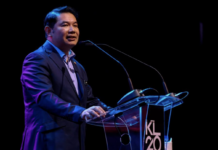KUALA LUMPUR, Aug 28 — The government is hoping to work closely with all parties in the renewable energy (RE) industry to ensure a just and systematic transition, considering the energy trilemma of affordability, security and sustainability.
Natural Resources, Environment and Climate Change Minister Nik Nazmi Nik Ahmad said a new investment of approximately RM637 billion up until 2050 in RE is required, which includes investments in RE generation sources, strengthening of grid infrastructure including transmission lines enhancement, energy storage systems integration and grid system network operation augmentation.
He said a robust and flexible grid is critical as the intended ramping up of RE will be very much solar-based.
“Taking into account the Malaysia Energy Transition Outlook (METO) report, the government has announced an enhanced commitment to undertake an aspirational low-carbon energy pathway to accelerate our RE deployment in the power sector to 70 per cent, or 55 gigawatts (GW) by 2050, compared to the current level of 25 per cent, or 10GW, and the existing target of 40 per cent in 2050.
“This is part of the commitment I made during the unveiling of METO, in which I had pledged to put comprehensive, competitive, and aspirational power generation and supply planning policies in place,” he said in his keynote address at the Energy Transition (ET) Conference 2023 powered by Tenaga Nasional Bhd here, today.
This, he said, enables Malaysia to decarbonise and leverage its competitive advantage to draw in high-value yet environmentally-friendly investment that is sustainable and energy-centric.
Nik Nazmi said the government has also decided to allow cross-border trade of RE as a two pronged-strategy for Malaysia to capitalise and explore new higher-value RE demand in neighbouring countries, which will enable Malaysia to offer and enjoy greater grid flexibility with higher RE integration under the ASEAN Power Grid (APG) initiative.
“Certainly, the APG is a goal worth pursuing. As a multilateral undertaking, its achievement would result in a totally integrated Southeast Asian power grid. It would promote interconnectivity across the ten ASEAN member states with our combined population of more than 670 million and counting, allowing cross-border electricity trade across the region.
“The government invites all interested energy players, especially our local energy companies such as Telekom Nasional Bhd, to continue and facilitate the discovery of new and renewable sources of energy across the nation and our borders,” he said.
He said cross-border RE trading will be part of Malaysia’s contribution to the creation of the APG and, one would argue, towards strengthening ASEAN integration as a whole.
Nik Nazmi said the recently concluded 41st ASEAN Ministers on Energy Meeting (AMEM-41) in Bali, Indonesia, has resulted in, among others, Malaysia, Indonesia, Brunei and the Philippines deciding to embark on a sub-region focus group to ramp up existing interconnectivity for green energy.
“ASEAN is an integral part of Malaysia’s future. Hence, it is crucial for us to achieve a just and comprehensive energy transition as an interconnected region, with the APG as a key component,” he said.
Nik Nazmi said the realisation of an integrated regional grid with a high share of RE hinges on providing a smart, flexible and robust grid system and infrastructure.
“Therefore, I urge TNB to draw on its extensive 70-year history in grid development and management to continue its effort in modernising and digitalising the National Grid.
“I trust that this effort will play a vital role in propelling the APG initiative towards success while supporting the creation of a resilient, intelligent, and adaptable network that remains reliably capable of fulfilling the country’s energy transition requirements,” he said.



















